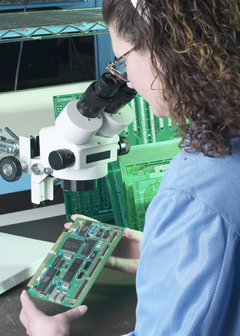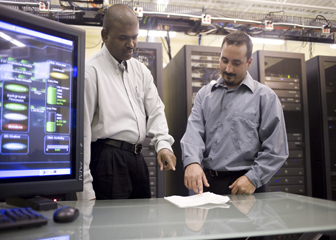Summary

| Quick Facts: Computer Hardware Engineers | |
|---|---|
|
$98,810 per year
$47.50 per hour |
|
| Bachelor’s degree | |
| None | |
| None | |
| 70,000 | |
| 9% (Slower than average) | |
| 6,300 | |
What Computer Hardware Engineers Do
Computer hardware engineers research, design, develop, and test computer equipment such as chips, circuit boards, or routers. By solving complex problems in computer hardware, these engineers create rapid advances in computer technology.
Work Environment
Computer hardware engineers usually work in research laboratories that build and test various types of computer models. Most work in high-tech manufacturing firms. Some work in computer systems design firms, research and development firms, or for the federal government.
How to Become a Computer Hardware Engineer
Most entry-level computer hardware engineers have a bachelor’s degree in computer engineering, although a degree in electrical engineering generally is acceptable.
Pay
The median annual wage of computer hardware engineers was $98,810 in May 2010.
Job Outlook
Employment of computer hardware engineers is expected to increase 9 percent from 2010 to 2020, slower than the average for all occupations. A limited number of computer hardware engineers will be needed to meet the demand for new types of computer hardware because more innovation in computers now takes place with software than with hardware.
Similar Occupations
Compare the job duties, education, job growth, and pay of computer hardware engineers with similar occupations.
O*NET
O*NET provides comprehensive information on key characteristics of workers and occupations.
Contacts for More Information
Learn more about computer hardware engineers by contacting these additional resources.











